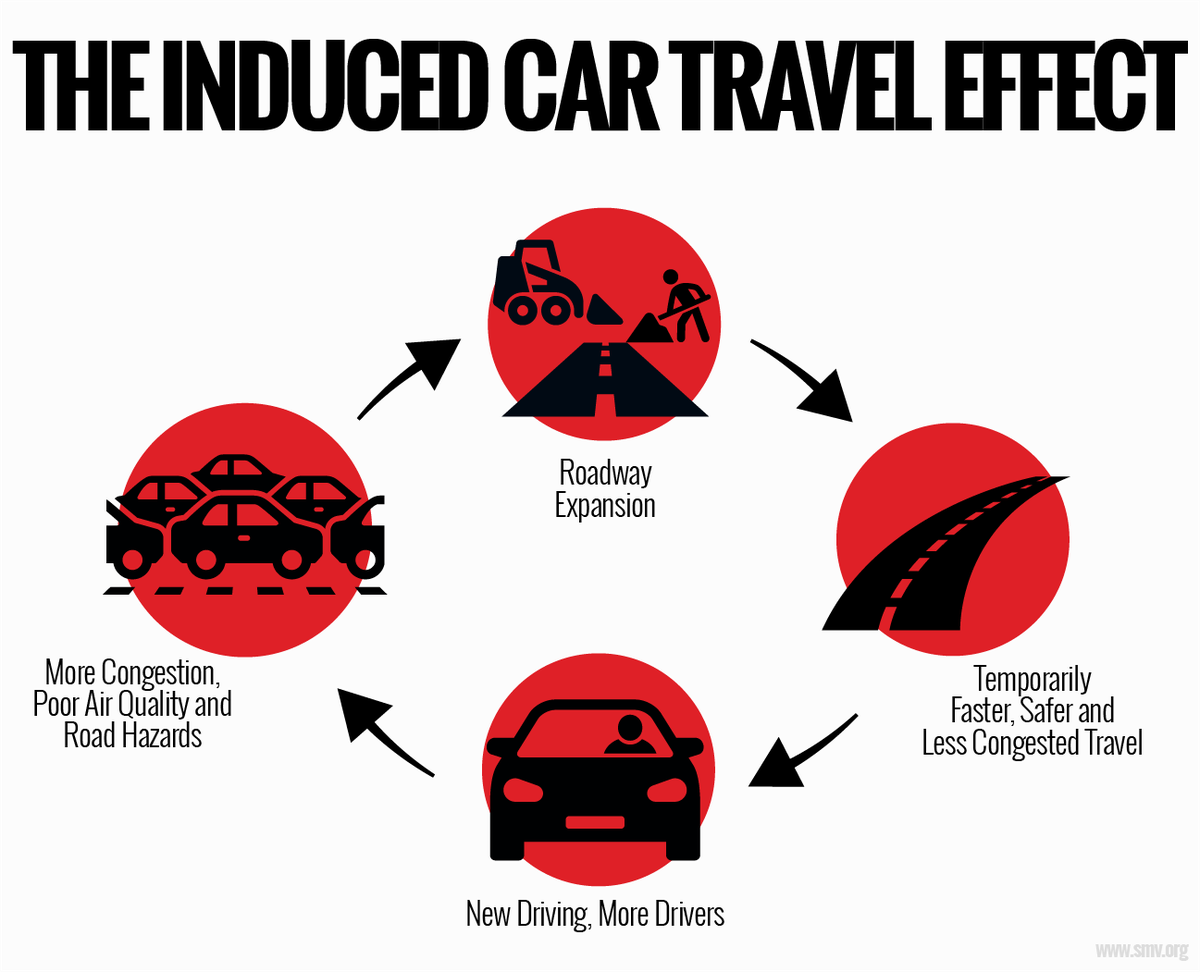Question Your World: How Does Roadway Expansion Cause More Traffic?
Some things in life are simply counterintuitive. For example, if you want to cool your mouth off from eating spicy food, water actually does not help. Water just spreads the spicy compounds around more! To cool your mouth down, you’d need something dairy-based or maybe even some alcohol. Water—which seems like a natural solution to the inflamed-spicy-hot-mouth issue—is counterintuitively NOT a way to counteract the hotness.
Similarly, scientific research is suggesting another counterintuitive reality: adding more lanes to roads and highways actually INCREASES traffic congestion! Yes, you read that correctly: expanding roads does not provide a long-term solution to traffic congestion; it actually makes it worse.
Experts reviewed a bunch of new studies to understand the relationship between expanding roads of various sizes and vehicle miles traveled, a metric that relates to the total amount of driving done by people living in an area.
For some context: we’ve all seen this happen in our own lives. Once upon a time, somewhere in our driving past we encountered a very congested stretch of roadway. That roadway has then been expanded to alleviate traffic congestion. For a brief time, it may have felt like relief—you’re traveling faster, driving for a shorter amount of time—but in the long term, it’s back to being congested again!
Why does this keep happening? Expanding new roadways creates easy and open stretches of driving to new and further away places, which winds up attracting more drivers. Some give up carpooling, using active transportation like walking and biking, while others give up mass transit.
As more drivers use this newly expanded road, it just winds up congested again. Then folks in that region ponder solutions and the traditional one thus far has been, yep, you guessed it, expanding road ways ... which will just attract more new drivers and continue this perpetual cycle of expansion and congestion!

The main finding of this review? A roadway expansion of 10% is likely to increase vehicle miles traveled by 3%-8% in the short term and around 8% to 10% in the long run. There’s even a name for this: the induced travel effect! Meaning this is not addressing anything in the long run, just creating more traffic ultimately.
Traffic congestion is not only stressful but also takes up a lot of time. Peak hour travel times for some citizens are up to 200 hours a year in large metropolitan areas. That’s like watching the entire director’s cut of The Lord of the Rings 17 times!
But wait, there's some good news here, too. Much like the spicy-food/milk scenario, this too has a solution! This study provides empirical evidence that exclusively curating all transportation planning decisions to cars is not the solution. What do they suggest? That we diversify.
Bike lanes, mass transit hubs, dense urban development near amenities and high-occupancy lanes were a few items attributed to lowering a region’s congestion while simultaneously having many positive impacts on health, culture and the environment.
The power of observation is amazing and city planners can now use this information to approach isolated variables like population change, economics, geography and other factors that play into the uniqueness of specific places. For example: what works in Roanoke may not work in Virginia Beach, or the other way around.
Virginia is growing and our traffic congestion is, too, especially if we only keep widening roads to accommodate more cars. Regions like Northern Virginia are facing big decisions as they try to serve the community’s needs and reduce traffic nuisance along the way. A recent review of the proposed expansion suggests that increasing the size of the highway would fuel a massive surge in individual drivers, and thus traffic.
Much like the international study, the critics of the Northern Virginia highway expansion are calling for a larger emphasis on walkable and mass transit-friendly approaches. Counterintuitive, but effective! From alleviating spicy-food-mouth aches to roadway congestion, science has you covered!


